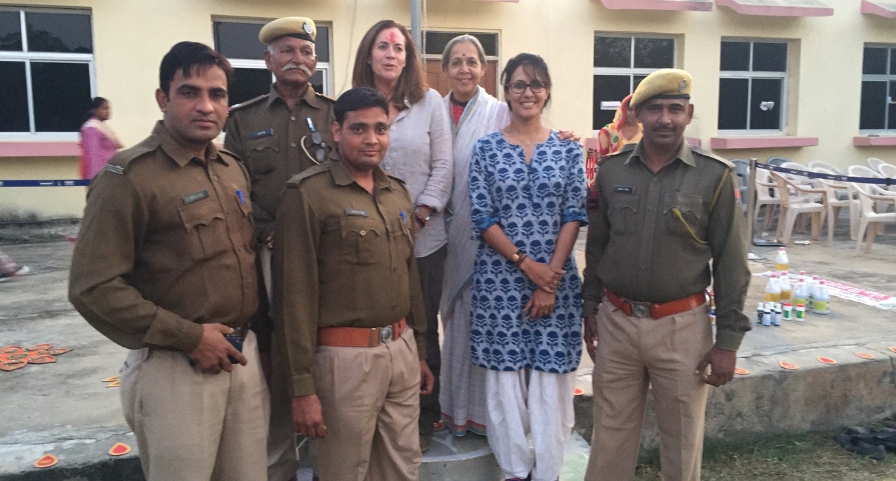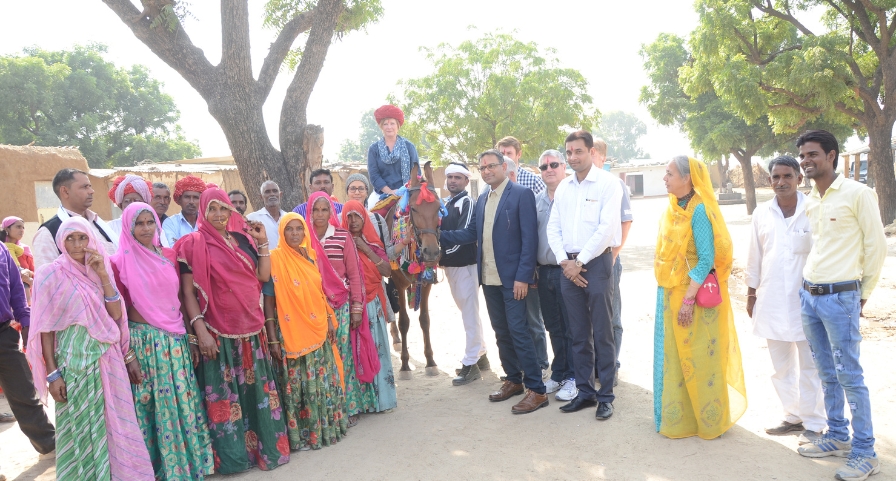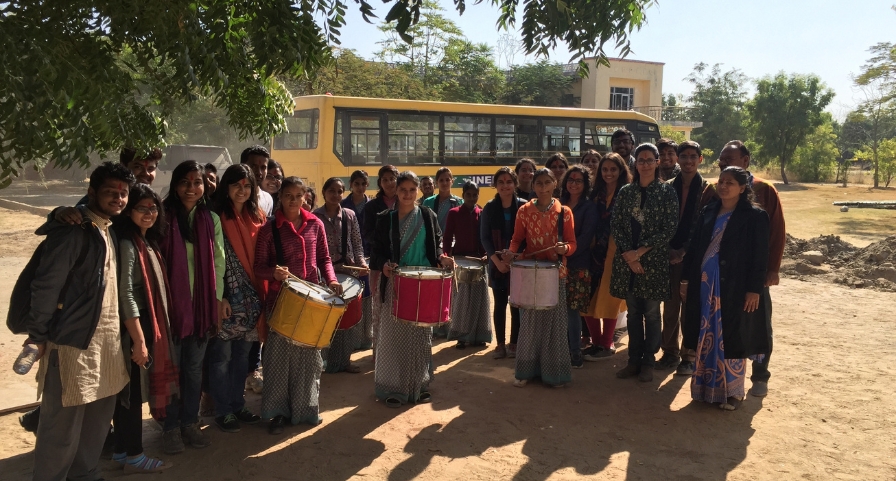Armed with a MBA degree and successful stints in corporate houses such as Bharti Airtel and the Carlson Group, Chhavi Rajawat chose a completely different terrain for herself. She was elected twice as the sarpanch (elected head of the village level statutory institution) of Soda, 60 kms outside Jaipur in Rajasthan, serving office from 2010 to 2020.
Speaking to Village Square about her feat, on the sidelines of the National Conference of Women Leadership Moonshot: Shaping the Future, organised by the Sankala Foundation in New Delhi, Rajawat delved into how and why she accepted the challenge.
Some have greatness thrust upon them
“Luckily for me, the decision (to be sarpanch) was not mine but the village president’s. My question to them was, ‘How will I do this?’ At that time, I had just started my horse-riding academy in Jaipur and I was in the process of transitioning from the private sector to running my family business,” recalls Rajawat.
It’s important to be inclusive. It’s important to be humble and not arrogant.
Also read: A widow becomes sarpanch at 80, busting ageism myths

She was told that she just needed to attend two panchayat meetings each month and one at the block level. “I said that’s not happening. If I commit, I am going to be there myself,” Rajawat remembers saying. Thereafter, the campaigning was done by the village folk who wanted her to be the sarpanch.
“It was not all hunky dory – there were two other contenders in the election. I wanted exactly that because then I could understand what grassroots elections are all about… and see it up-close and personal,” she explains.
On the matter of building trust with those who elected her, Rajawat says, “From day one, I made it clear that even if I wasn’t in office, the people had the right to go to the office and demand to know where funds were coming from and how they were being utilised. They realised that I meant business and that I was someone who was going to be inclusive.”
She even stated that if her own family or relatives encroached upon any land, it’d be the first wall she’d break. “The elders just laughed it off,” says Rajawat. “During the very first week, they saw that I meant what I said,” she adds.

When the then panchayat secretary physically manhandled an aged man, Rajawat was quick to intervene and let the errant secretary know that it was his duty to attend to him, regardless of the number of times he approached with the same question. Thereafter, she dropped him off at the BDO’s office and requested that someone more respectful take on that office.
This instance, feels Rajawat, made the people realise that she’d do complete justice to represent them, and not let anyone abuse power.
Also read: Good or bad to call women leaders ‘mahila sarpanch?’
The next hurdle
“Alongside that, they knew that we didn’t have funds in the panchayat, and also access to funds through the government. The three processes – administrative, technical and financial sanctions – take time,” points out Rajawat. During the time she assumed office, in February 2010, there were just a few months left for desilting a water reservoir before the rains arrived.
“I went from pillar to post, to every door in the government at the state and the centre. But unfortunately, there were no funds that the government could provide to us for excavating the silt out of the basin of the reservoir,” narrates Rajawat.

Despite the lack of funds, she was able to galvanise the people of the village into a show of hands to manually desilt the reservoir. This was the first time in 70 years that the villagers came together in such numbers. “This situation also made them realise that I was human enough not to be arrogant and admit that I wasn’t successful. And find an alternate solution,” says Rajawat, who was eventually able to raise Rs 20 lakhs for this cause in a matter of four days by turning to friends and family.
With these efforts, the village administration and its people were able to desilt 10 acres of the 100-acre spread of the reservoir, and the success of this exercise made the people believe more in Rajawat. Thereafter, she found the people backing her in every project she undertook.
The takeaway
Rajawat says she realised that at the village level, it takes time to bring about any change. And when you need to initiate change, you need to involve all the stakeholders. “I was asked if I wanted to complete the work of five years in five months. That was a compliment,” she says.

“It’s important to be inclusive. It’s important to be humble and not arrogant,” says Rajawat, adding that being in governance, “is not rocket science, it’s doable. But you have to be authentic.”
Also watch: From fields to skies: Rural women soar with drone training
The lead image on top shows India’s first lady sarpanch with an MBA degree, Chhavi Rajawat (pictured right) grinding grains in the village. (Picture courtesy Chhavi Rajawat)








